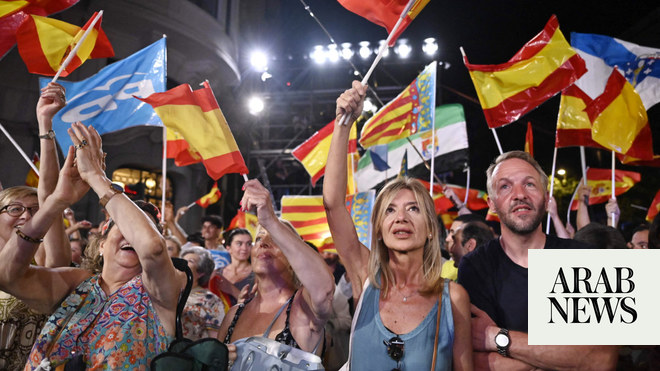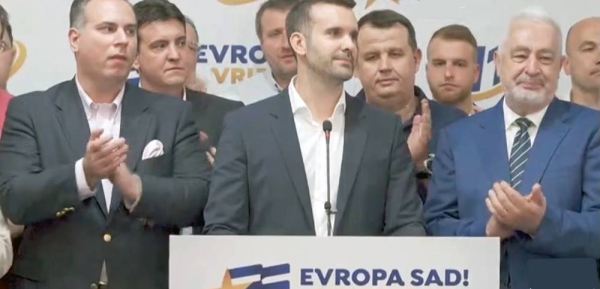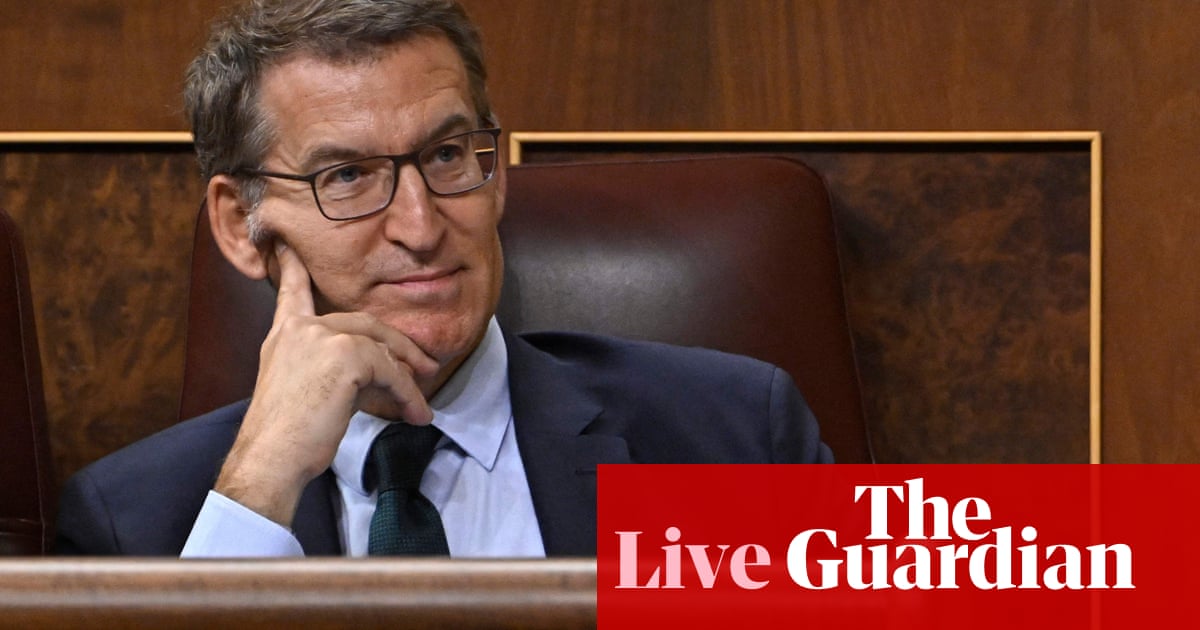
Spain’s conservative People’s party has won a resounding victory but fallen just short of an absolute majority in a Madrid regional election dominated by the coronavirus pandemic and marked by a bitter and deeply polarised campaign.
The PP, led by incumbent regional president Isabel Díaz Ayuso, won 65 seats in the 136-seat regional assembly, more than doubling its tally in the 2019 regional election and taking more seats than all three leftwing parties combined. However, its failure to cross the majority threshold of 69 seats means it will now have to rely on the help of the far-right Vox party to form a new government.
The Socialist party of the prime minister, Pedro Sánchez, suffered a bruising night that was compounded by the news that his former coalition partner, the Unidas Podemos leader Pablo Iglesias, was leaving Spanish politics. Not only did the Socialists slump from 37 seats to 24, they were also pipped to second place by the leftwing regional Más Madrid party, which also took 24 seats but which attracted a fractionally higher share of the vote.
Despite winning 13 seats – just one more seat than in 2019 – Vox is now guaranteed a pivotal role in Madrid politics. The far-left, anti-austerity Unidas Podemos won 10 seats – three more than last time – and came in fifth. But, as the count neared its end, Iglesias, who had resigned as a deputy prime minister in the coalition government to run in the regional election, announced he was leaving Spanish politics.
“I will remain committed to my country but I won’t get in the way of new leadership,” he said.
The centre-right Citizens party, once the great hope of the Spanish centre-ground, crashed out of the regional assembly, losing every one of the 26 seats it won two years ago. The participation rate was 76.2%, 11 percentage points up on 2019.
Ayuso hailed the result as “another triumph for freedom in Madrid” and told Sánchez his “days are numbered” while the PP’s national leader, Pablo Casado, said it represented a vote of no confidence in Spain’s leftwing coalition government.
Vox’s leader, Santiago Abascal, immediately announced that his party would help facilitate Ayuso’s return to power “to ensure that there is no way for the left to govern in Madrid”.
Mónica García, Más Madrid’s candidate, thanked the 600,000 people who had voted for her and said her party would “be the political force that leads the alternative in the Madrid region”.
The Socialist candidate, Ángel Gabilondo, said the party’s results “aren’t good and aren’t what we’d hoped for”, while the Citizens candidate, Edmundo Bal, claimed his shrinking party still represented “the antidote to extremes and polarisation”.
The snap election was triggered in March when Ayuso – who has dragged the Madrid PP far to the right of its national counterpart – responded to efforts to topple PP-led regional governments elsewhere in Spain by dissolving her coalition administration with Citizens.
Ayuso, a vociferous critic of the Sánchez government and an opponent of its Covid lockdowns, has refused to rule out a deal with Vox, saying it shares common ground with the PP on “some fundamental questions”.
While Ayuso’s attitude has won her the respect of many hospitality industry workers, her critics accuse her of putting the regional economy before people’s health. In May last year, the head of public health in the region resigned after disagreements over Ayuso’s response to the pandemic. Her insistence on keeping bars and restaurants open has been questioned.
The number of Covid cases per 100,000 people over the past fortnight stands at 343 in Madrid, compared with a national average of 214. In Madrid’s intensive care units, 44% of the beds are occupied by Covid patients; across Spain as a whole, the proportion is 22.9%.
By mid-morning on Tuesday, long queues had formed outside polling stations, where workers had been provided with two masks, face screens, disposable gloves and hand gel. Older voters were invited to cast their ballots between 10am and 12pm, while those with the virus or in quarantine were asked to vote in the final hour, between 7pm and 8pm.
The electoral campaign was littered with recriminations and accusations, and two of the candidates – including Ayuso – received death threats.
Last month Iglesias walked out of a TV debate after Vox’s candidate, Rocío Monasterio, tried to cast doubt on the death threat he and his family had received along with four assault rifle bullets.
Ayuso had seized on Iglesias’s candidacy to suggest Tuesday’s poll was a choice between “communism and freedom”, while Vox has been criticised for stigmatising unaccompanied migrant children in its election posters.
Sánchez, meanwhile, had claimed that a deal between the PP and Vox could herald “the beginning of the end of Madrid’s strong democracy and its many rights and freedoms”.












